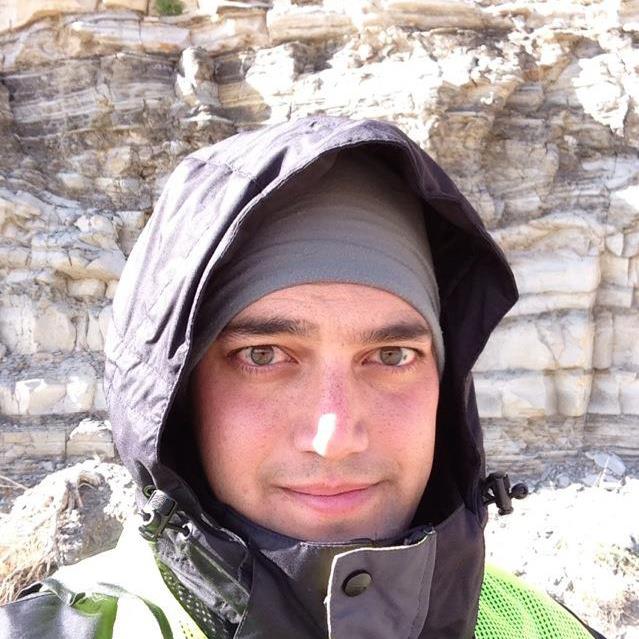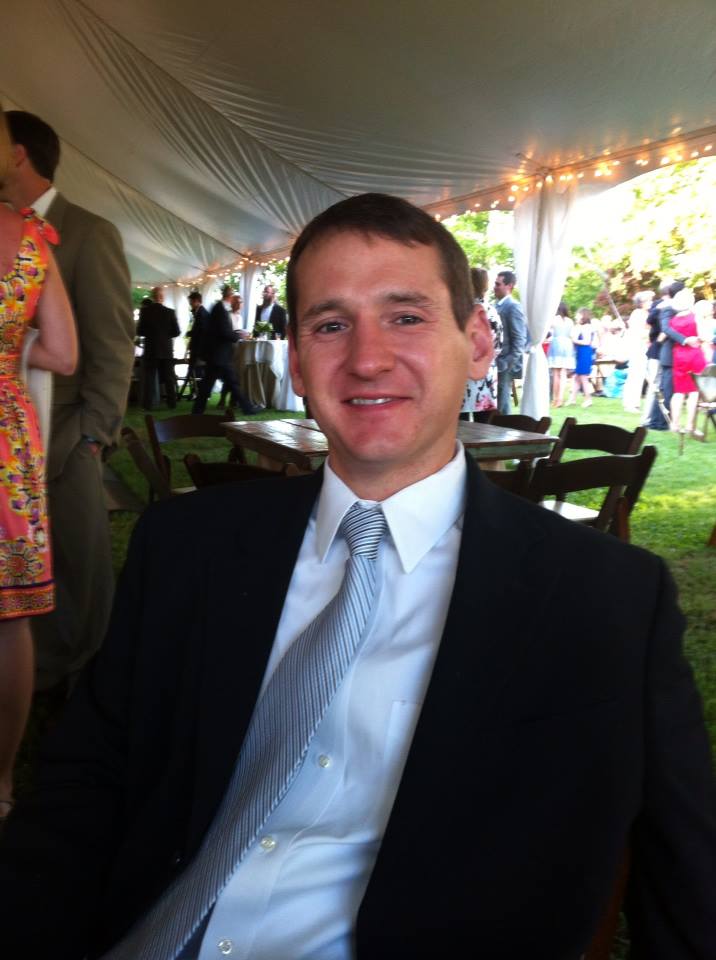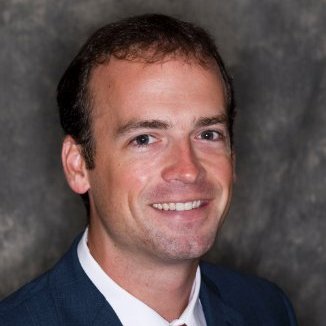Current Students & Researchers
Dr. Neeraj Hanumante

Dr Neeraj Hanumante is a postdoctoral fellow at the Energy Institute of the University of Texas at Austin. He works with Dr Carey King on the C-THRU project, aiming to help the petrochemical industry with recycling and mitigating GHG emissions through macroeconomic modelling that is informed by physical energy and resource use. Neeraj studied Mechanical Engineering at Nagpur University, India, followed by a Masters in Energy Systems Engineering at the Indian Institute of Technology, Bombay. He then worked as a Scientific Officer for India’s Atomic Energy Regulatory Board before returning for a PhD with ITT Bombay and Monash University, Australia in 2015. He was awarded the prestigious Prime Minister’s Fellowship for Doctoral Research. The PhD used an integrated planetary model to assess the implications of pursuing a circular economy as a means of achieving global sustainability. After completing his PhD, Neeraj worked as a Post-Doctoral fellow at IIT Bombay, focusing on modelling the global water system for the Generalised Global Sustainability Model.
Former Students & Researchers
2022:
Dr. Elham Jahani
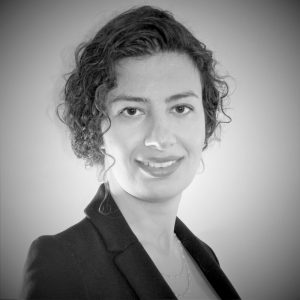
Elham Jahani served as a postdoctoral fellow at the Energy Institute of the University of Texas at Austin, working with Dr. Carey King, on the Economic implications of the C-THRU project. Her research focused on macroeconomic modelling in order to assess resource systems and their interactions with economy and environment. She received her Ph.D.in Intelligent Infrastructure Engineering from Iowa State University (ISU) in 2020 with a focus on improving city-scale building energy modelling techniques by reducing the computational effort and assessing the impact of energy efficiency programs at the city scale and policies on peak demand and energy use. She earned her Master’s degree in Sustainable Environment and Energy Systems from Middle East Technical University (METU) in 2016. During her studies at METU, she conducted research on renewable energy resources and employing hybrid energy systems for providing clean energy for communities located on islands.
2021:
Dr. Sajed Sadati
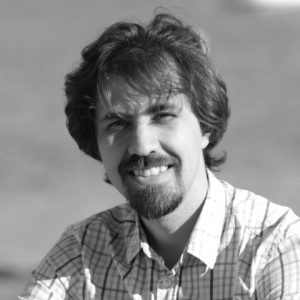
Sajed Sadati served as a postdoctoral fellow at the Energy Institute of the University of Texas at Austin, working with Dr. Carey King, on the Economic implications of the C-THRU project. He earned his BSc and MSc degrees in the field of Aerospace Engineering from Amirkabir University of Technology (AUT), Tehran, Iran, in 2008 and 2011, respectively. Because of his interest in studies on sustainable development and renewable energy technologies, he pursued a second masters in Sustainable Environment and Energy Systems program at Middle East Technical University (METU), Turkey, from 2013 to 2016. His research at METU included investigation on applications of energy storage for designing cost effective renewable energy systems. In 2020, He earned a PhD in Civil Engineering from Iowa State University (ISU) with a specialization in sustainable infrastructures. For his PhD, he worked on performance assessment of electrification within the transportation infrastructure and electricity-based processes at airports and highways. He has received several awards during his research at ISU including the Graduate Research Initiative Fellowship in 2017, the Student of the Year Award from Partnership to Enhance General Aviation Safety, Accessibility and Sustainability in 2019 and the Research Excellence Award from ISU in 2020. He also won an Airport Cooperative Research Program Graduate Research Award on Public-Sector Aviation Issues in 2018, preparing research on “Impact of Utilizing Electric Ground Power Systems on the Airport Electricity Demand Profile.”
2020:
Reuben Gol
Reuben was an Energy and Earth Resources graduate student studying the life cycle and economics of biofuels from algae.
2018:
Qiuying “Cho” Lai
Cho was an Energy and Earth Resources graduate student. Her modeling focusesd on simultaneously and consistently modeling concepts within both the biophysical (e.g., population, natural resources and energy) and monetary (e.g., money, debt, interest rates) domains. Specifically, she combined the biophysical Human and Nature Dynamic Systems (HANDY) model (Motesharrei, 2014) with the monetary models of R. M. Goodwin, Hyman Minsky, and Steve Keen. Her work continued that of former students Prathaj Haputhanthri and Harshit Jayaswal.
Balagopal Menon (Visiting Researcher)
Balagopal was an Associate Professor in the Department of Mechanical Engineering at the SCMS School of Engineering & Technology in Kerala, India. He has a PhD in Industrial Engineering & Management from the Indian Institute of Technology Kharagpur. He is an expert in system dynamics modeling of business and physical processes. Dr. King hired Dr. Menon to advance work on a macroeconomic system dynamics model of the economy to explore trade-offs of debt and an energy transition to renewable/low-carbon energy.
2017:
Prathaj Haputhanthri
Prathaj earned a Master of Science degree in Energy and Earth Resources. He researched a very fundamental question of how to model the economy and energy. His modeling focused on simultaneously and consistently modeling concepts within both the biophysical (e.g., population, natural resources and energy) and monetary (e.g., money, debt, interest rates) domains. Specifically, he used the the biophysical Human and Nature Dynamic Systems (HANDY) model (Motesharrei, 2014) to add a distinction between fossil and renewable energy systems. These types of systems operate fundamentally differently. Fossil energy systems extract and consume energy from fossil stocks, that have no regenerative abilities, and their total investment requires a relatively low fraction of fixed costs (capital) to total costs. Renewable energy systems (e.g,. wind and photovoltaics) extract energy from primary flows, not stocks, and their total investment requires a relatively high fraction of fixed costs (capital) to total costs.
Thesis: Biophysical Modeling of Human and Nature Interactions, Human and 3-Nature Dynamics Model (HAN3DY)
Harshit Jayaswal
Harshit (“Harsh”) is from India and an Energy and Earth Resources graduate student. Before coming to the University of Texas at Austin he received a bachelor’s degree in Environmental Engineering and worked as an Environmental Manager for 2 years. He researched a very fundamental question of how to model how energy and environmental technologies and management impact the economy. His modeling focused on simultaneously and consistently modeling concepts within both the biophysical (e.g., population, natural resources and energy) and monetary (e.g., money, debt, interest rates) domains. Specifically, he worked to combine the biophysical Human and Nature Dynamic Systems (HANDY) model (Motesharrei, 2014) with the monetary models of R. M. Goodwin, Hyman Minsky, and Steve Keen.
Jayaswal, “Harsh”, and King, Carey W. Macroscale Modeling Linking Energy and Debt, 34th United States Association for Energy Economics & International Association for Energy Economics (USAEE/IAEE) North American Conference, Tulsa, OK, October 23-26, 2016. Paper abstract: ![]() pdf Presentation:
pdf Presentation: ![]() pdf.
pdf.
Thesis: Macroscale Modeling Linking Energy and Debt: A Missing Linkage
Yun Kyong Park
Yun graduated with an Energy and Earth Resources Master of Arts degree researching the carbon cost mitigation curve for South Korean industry and electricity sectors.
Thesis: Carbon Abatement Costs and the Potential of South Korea’s Power
Sectors
Yongseok Yoon
Yongseok graduated with an Energy and Earth Resources Master of Science degree researching the role of “useful exergy” (or available energy that is converted to energy services at some efficiency) by modeling the economic growth (GDP) of South Korea as a function of useful exergy. This follows the research of Reiner Kummel and Robert Ayres on this subject.
2016:
Kristin Abbott
Kristin investigated the enhanced risk to corrosion of water network (wastewater) pipelines that reside in floodplains. Using data from Austin Water, she assessed the location and quantity of pipelines (length of pipelines) that reside in flood-prone areas in tandem with the pipeline material and makeup of the surrounding soil. These are major factors that contribute to enhanced corrosion potential.
Kristin’s M.S. Thesis: “At-Risk Wastewater Pipeline Identification Due to Flooding“.
Grecia Chavez
Grecia is a native of Peru and an Energy and Earth Resources graduate student. Grecia’s research focuses on comparing the productivity of oil and gas wells based in shale plays with the estimated cash flows (from those wells) and the financial viability of the company that owns the wells. She is focusing on the Eagle Ford play of Texas and three companies that operate wells in that play: EOG Resources, Inc., Chesapeake Energy Corporation, and Pioneer Natural Resources.
Grecia’s M.S. Thesis: “Eagle Ford Shale: Evaluation of Companies and Well Productivity”
Tess Haegele
Tess assessed the layout of the Austin Water pipeline networks (treated drinking water, wastewater, and reclaimed water) using network theory and information theory metrics of network structure. The long-term goal of this type of research is to in order to inform decisions about future investments in water systems as well as networked systems in general. As networks (such as water supply pipelines) grow in size, it is important that we understand how it is evolving in a balance between efficiency and resilience, and by using these methods, we can assess how water networks reside within this balance and how that balance has changed over time.
Tess’s M.S. Thesis: “An Analysis of the City of Austin Pipe Networks Using Network and Information Theory Metrics“.
2015:
Alan Barraza
Alan graduated with a Master’s degree in the Energy and Earth Resources program in the Jackson School of Geosciences. He researched the cost feasibility of desalination of brackish groundwater for Central Texas..
Publications:
Alan’s M.S. thesis: “Feasibility of Brackish Water Desalination as an Alternative Water Supply in the Barton Springs/ Edwards Aquifer Conservation District.”
Alan’s CV: ![]() PDF
PDF
Stephen Bond
Stephen graduated with a Master’s degree in the Energy and Earth Resources program in the Jackson School of Geosciences. His thesis used information theory metrics to measure the resilience and efficiency of the structure of the world economies characterized in the World Input-Output Database.
Publications:
Stephen’s M.S. thesis: “Relating Energy Use to Economic Complexity”
Aksornchan Chaianong
Acksornchan is a native of Thailand. Her thesis assessed the feasibility and cost of implementing residential photovoltaics in Bangkok, Thailand.
Publications:
Chaianong, A. and King, C. W. An Analysis for Promoting Residential-Scale Solar Photovoltaic (PV) in Bangkok, Thailand. Poster at the 33rd USAEE/IAEE North American Conference, Pittsburgh, PA, October 25-28, 2015. ![]() PDF
PDF
Aksornchan’s M.S. Thesis: “An Analysis for Promoting Residential-scale Solar Photovoltaic (PV) in
Bangkok, Thailand“.
Alyssa Donovan
Alyssa is a student in the Energy and Earth Resources program of the Jackson School of Geosciences. Her current research is focused on comparing the energy return on energy invested (EROI) across countries using data from the International Energy Agency. This research is important to understand long-term trends of the quality of energy resources across scales from single technologies to the macroeconomy.
Publications:
King, Carey W., Maxwell, John P., and Donovan, Alyssa. Comparing world economic and net energy metrics, Part 1: Single Technology and Commodity Perspective, Energies, 2015, 8, 12949-12974 (article online and as ![]() PDF. SUPPLEMENTAL INFORMATION: Excel file with calculations, and
PDF. SUPPLEMENTAL INFORMATION: Excel file with calculations, and ![]() PDF with explanation of methods.
PDF with explanation of methods.
King, Carey W., Maxwell, John P., and Donovan, Alyssa. Comparing world economic and net energy metrics, Part 2: Total Economy Expenditure Perspective, Energies, 2015, 8, 12975-12996 (article online and as ![]() PDF). SUPPLEMENTAL INFORMATION: Excel file with calculations, and
PDF). SUPPLEMENTAL INFORMATION: Excel file with calculations, and ![]() PDF with explanation of methods.
PDF with explanation of methods.
Alyssa’s M.S. Thesis: “Direct-Energy Energy Return on Investment and Carbon Cost Shares for Selected Countries and the World 1960-2010″ ![]() PDF
PDF
Donovan, A. and King, C. W. Trends in Country and Global Industry Own Use and Production between 1960-2010. Poster at the 37th 2014 International Association for Energy Economics, New York, NY, June 15-18, 2014. ![]() PDF
PDF
Jesse Libra
 Jesse is a dual-degree student seeking degrees in Energy and Earth Resources from the Jackson School of Geosciences and Global Policy from the LBJ School of Public Affairs. She has experience in using statistical methods, geographic information systems, and understanding development issues associated with water resources and climate change. She is interested in the effects of land-use and climate change on water resources, specifically pertaining to adaptive policy strategies for developing regions. esse’s is working on a research project with the Climate Change and African Political Stability program of the Robert S. Strauss Center. Her research with Dr. King, supported by his project funded by the German Environment Ministry, is mapping and water balance modeling of micro river basins in Brazil that might have significant land-use change due to agricultural biofuel feedstock expansion. Jesse graduated with a B.S. in Geoscience from the University of Iowa in 2011.
Jesse is a dual-degree student seeking degrees in Energy and Earth Resources from the Jackson School of Geosciences and Global Policy from the LBJ School of Public Affairs. She has experience in using statistical methods, geographic information systems, and understanding development issues associated with water resources and climate change. She is interested in the effects of land-use and climate change on water resources, specifically pertaining to adaptive policy strategies for developing regions. esse’s is working on a research project with the Climate Change and African Political Stability program of the Robert S. Strauss Center. Her research with Dr. King, supported by his project funded by the German Environment Ministry, is mapping and water balance modeling of micro river basins in Brazil that might have significant land-use change due to agricultural biofuel feedstock expansion. Jesse graduated with a B.S. in Geoscience from the University of Iowa in 2011.
Publications:
Jesse’s M.S. Thesis: “Hydrologic Impacts of Biofuel Expansion in the Ivinhema Basin, Brazil”
Libra, Jesse, King, Carey; Xavier, Alexandre; and Scanlon, Bridget. “Biofuel Expansion in the Ivinhema Basin: Model Development” Poster at the 2014 Fall Meeting of the American Geophysical Union, San Francisco, CA, December 15-19, 2014. ![]() PDF
PDF
Libra, Jesse, 2015, “Trends in water policy: An analysis of bills in the 84th Texas Legislature“. This document summarizes the water-related bills discussed in the 2015 Texas Legislative session.
Kiran Seshadri
Kiran’s thesis created a life cycle assessment tool for calculating energy return ratios, such as energy return on energy invested, for energy systems as a single model that includes many electricity technologies. Thus, one can choose a mix of electricity technologies to calculate the energy return ratios of the mix of those technologies.
Kiran’s M.S. Thesis: “Integrated Open Source Life Cycle Assessment of Electricity Generation Technologies“.
John Veracruz
For his thesis John performed a net energy analysis of sorghum-based biofuels grown in West Texas. The results indicate that from an energy balance perspective 2.5 unit of energy could be provided for energy unit of energy invested in the sorghum to energy (ethanol) process. If accounting for the economic value of agricultural coproducts, then this energy return ratio could be up to 5.3. However, power (= energy / time) is also important, and because the sugars in sweet sorghum degrade very rapidly after harvest, one must process the sorghum within days after harvest. This means that the production facilities (e.g., capital investment) must be larger than that for corn-based ethanol because corn can be stored for many months after harvest. Therefore, sweet sorghum is unlikely to be a viable fuel in the future.
John’s M.S. Thesis: “Energy Analysis of Sweet Sorghum Ethanol Using a Bottom-Up Energy Return Ratio Matrix Approach“.
Jason A. Wible
After graduation Jason took a position at ARPA-E in the Department of Energy. Jason previously held field engineering, service quality, equipment maintenance and crew management positions at oil and gas services company Schlumberger from 2000 to 2009. Jason’s work at Schlumberger included reservoir evaluation and productivity projects for major operating companies like ConocoPhilips and BP and on the North Slope of Alaska and deepwater in the Gulf of Mexico. From 2009 to 2013, Jason served as a Principal for a technology start-up company participating in all areas of the business from product conception through commercialization, fund raising, team building, growth, and international expansion. Jason started his career as an engineer at Hunt Refining Company. He is an active member of the Society of Petroleum Engineers (SPE), and earned both a BS in Chemical Engineering, with Honors, and a BS in Biological Sciences from the University of Alabama.
Jason’s CV: ![]() PDF
PDF
Jason’s website: http://jasonwible.com/
Jason’s LinkedIn page: https://www.linkedin.com/pub/jason-wible/17/8a/631
2014:
George McGuirk
After graduating from Rice University in 2003, George began his career as an environmental consultant leading assessment and permitting projects for residential and commercial development in Austin, Texas, before transitioning to managing field operations for large-scale soil and groundwater remediation projects associated with current and historic industrial activities. George is now in his third year as a dual-degree MS/MBA candidate (in the Jackson School’s Energy and Earth Resources MS program and McCombs School of Business MBA program) concentrating in energy resource management, specifically focused on electricity market innovation and more efficient use of traditional energy resources. His research has varied from identifying drivers of residential solar adoption to examining macroeconomic impacts of system-wide energy and resource trends. In his free time, George enjoys camping, fishing, mountain biking, and rock climbing.
George’s resume: ![]() PDF
PDF
Publications:
George’s M.S. Thesis: “Food Expenditure Measures to Supplement Net Energy Ratios for
Selected Countries 1961 – 2011” (contact Dr. King for more information on food and energy data).
2013:
John P. Maxwell
Current Position: Fiscal Analyst for the State of Michigan
 While a dual Master degree student at UT (LBJ/EER), John studied the interaction between energy and the economy. The interface of these two variables has played and will continue to play a large role in shaping both policy and economic research. With his research at UT, John looked to expand on previous work done by Dr. King, the idea of a systems-based approach to the application of energy into the economy. Thus, the idea of Energy Intensity Ratios can be thought of as way in which broad energy and economic trends can be normalized into a measure to help undergird a broader discussion of policy solutions and normative economic recommendations within the systems-based framework.
While a dual Master degree student at UT (LBJ/EER), John studied the interaction between energy and the economy. The interface of these two variables has played and will continue to play a large role in shaping both policy and economic research. With his research at UT, John looked to expand on previous work done by Dr. King, the idea of a systems-based approach to the application of energy into the economy. Thus, the idea of Energy Intensity Ratios can be thought of as way in which broad energy and economic trends can be normalized into a measure to help undergird a broader discussion of policy solutions and normative economic recommendations within the systems-based framework.
Publications:
King, Carey W., Maxwell, John P., and Donovan, Alyssa. Comparing world economic and net energy metrics, Part 1: Single Technology and Commodity Perspective, Energies, 2015, 8, 12949-12974 (article online and as ![]() PDF. SUPPLEMENTAL INFORMATION: Excel file with calculations, and
PDF. SUPPLEMENTAL INFORMATION: Excel file with calculations, and ![]() PDF with explanation of methods.
PDF with explanation of methods.
King, Carey W., Maxwell, John P., and Donovan, Alyssa. Comparing world economic and net energy metrics, Part 2: Total Economy Expenditure Perspective, Energies, 2015, 8, 12975-12996 (article online and as ![]() PDF). SUPPLEMENTAL INFORMATION: Excel file with calculations, and
PDF). SUPPLEMENTAL INFORMATION: Excel file with calculations, and ![]() PDF with explanation of methods.
PDF with explanation of methods.
John’s Master’s Thesis: “Energy Intensity Ratios as Net Energy Measures for Selected Countries
1978-2010“

